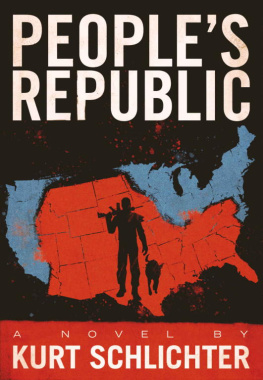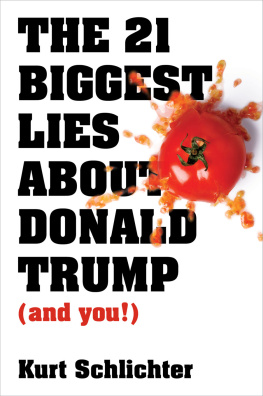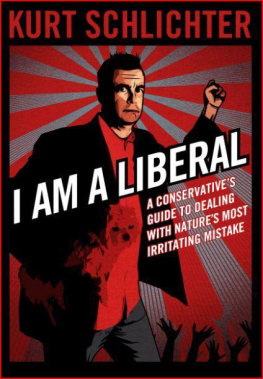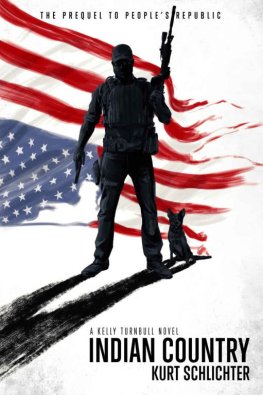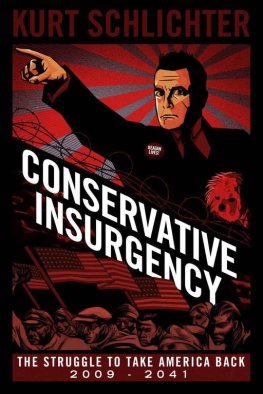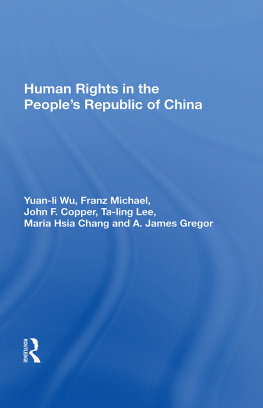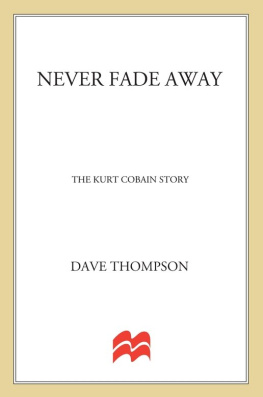Kurt Schlichter - Peoples Republic
Here you can read online Kurt Schlichter - Peoples Republic full text of the book (entire story) in english for free. Download pdf and epub, get meaning, cover and reviews about this ebook. year: 2016, publisher: Kurt Schlichter, genre: Detective and thriller. Description of the work, (preface) as well as reviews are available. Best literature library LitArk.com created for fans of good reading and offers a wide selection of genres:
Romance novel
Science fiction
Adventure
Detective
Science
History
Home and family
Prose
Art
Politics
Computer
Non-fiction
Religion
Business
Children
Humor
Choose a favorite category and find really read worthwhile books. Enjoy immersion in the world of imagination, feel the emotions of the characters or learn something new for yourself, make an fascinating discovery.
- Book:Peoples Republic
- Author:
- Publisher:Kurt Schlichter
- Genre:
- Year:2016
- Rating:4 / 5
- Favourites:Add to favourites
- Your mark:
- 80
- 1
- 2
- 3
- 4
- 5
Peoples Republic: summary, description and annotation
We offer to read an annotation, description, summary or preface (depends on what the author of the book "Peoples Republic" wrote himself). If you haven't found the necessary information about the book — write in the comments, we will try to find it.
Peoples Republic — read online for free the complete book (whole text) full work
Below is the text of the book, divided by pages. System saving the place of the last page read, allows you to conveniently read the book "Peoples Republic" online for free, without having to search again every time where you left off. Put a bookmark, and you can go to the page where you finished reading at any time.
Font size:
Interval:
Bookmark:
Kurt Schlichter
PEOPLES REPUBLIC
A Novel
Rios-Parkinson sipped a sparkling water from the cooler in the rear of his black SUV. Arthur and Sam were up front, separated from him by a thick glass partition. He was able to review his morning briefing papers, delivered earlier by courier, in quiet as they headed down from the hills.
His continuing operation in Los Angeles could not take up all of his attention, as much as he wished it to. All over California all over the two halves of the Peoples Republic, in fact there was too much going on. Yesterdays bloody chaos at the food center was hardly unique. Besides San Francisco 12 dead there were other riots of varying intensity by hungry citizens in Seattle, Oakland, San Diego, Baltimore, Cincinnati, and two in Fontana. He was slightly surprised that desolate Fontana even had two food centers. He made a mental note to cut Fontanas food allocation as a lesson to them about power and its uses.
The security forces had quelled all of these disorders, but the trend was ominous. Moreover, Rios-Parkinson had already been briefed that the food projections were running just 62% of the levels called for in the Tri-annual Plan. That meant the recent ration cuts would not be the end of it the rats would have to be cut again. He had been privy to some of the discussions of what to do about the chronic food and resource shortages over the last few months. No one at the table made any truly out-of-the-box suggestions, like deregulating the food production sector and returning control to the nominal owners of the farms, processing plants, and distribution companies. Instead, they agreed that the problem was likely saboteurs and wreckers whose selfishness was responsible for the nations miserable output. New regulations would be drawn up, and Rios-Parkinson resolved to his comrades that he would prosecute and punish the offenders.
There was some talk of alleviating the shortages in the short term by stepping up purchases from foreign producers, but the huge commodity buys that were currently keeping the people from starving had had the effect of raising food prices world-wide, and the Peoples Republic was already short of cash. China and the EU, though publicly supportive, were behind the scenes resisting the PRNAs demands for additional credit.
There was no discussion of ending the trade embargo with the United States. And there was not any discussion of how foreign nations were selling their own production to the Peoples Republic at inflated prices, then buying food for their own populace from the United States prosperous, barely-regulated farmers.
Nor was there any discussion of ending the Special Rations program or closing the Restricted Shops for VIPs. Rios-Parkinson had no qualms when he had shared a pair of delicious filets with Amanda the evening before. After all, to provide his very best service to the Peoples Republic, he and those like him needed to be insulated from mundane concerns about material matters. Nor was there discussion of limiting the Security Force Special Rations that helped secure the loyalty of the people who wielded the guns.
Rios-Parkinson resolved that stronger measures were needed to control these outrageous betrayals by ungrateful social criminals. He would order that in the future, disorder at food centers in his region be always quelled by deadly force as the initial response. There would be zero tolerance for such disruptions from now on; he would set the example for the whole country in his area. And he expected his innovation would be rewarded.
The SUV did not bother stopping at checkpoints. The guards knew it and the ID transmitter alerted them moments before it even arrived. He was able to drive out of the security cordon around his neighborhood without even slowing down.
Once down from the hill, they made good time. Rios-Parkinsons focus was his reports memos on operations, interrogation summaries, interesting transcripts from wiretaps and computer monitoring operations. The intercepts rarely identified traitors, and the people with the phones and the internet access his minions monitored were primarily connected members of the elite. What they provided him was information who was sleeping with whom, who was stealing, that sort of thing. He rarely used any of it for prosecutions. He preferred to use it for leverage. It was remarkable how compliant people became when they found out they were compromised. He had learned that watching the Hillary Clinton email debacle of the mid-teens. If they have your communications, they have you, he noted, and he resolved to be the one who had them.
The Bernie Sanders Internal Security Complex occupied several skyscrapers in downtown Los Angeles. Most corporations departed for the US once the political and economic course of the newly split blue states became clear, leaving the huge buildings almost empty. The new government nationalized them, then proceeded to attempt to connect the buildings with a series of walkways and tunnels while simultaneously renovating them to meet the newly enacted green construction standards. This turned into an utter disaster; the bureaucrats knew nothing about managing massive building projects, and the people who did were long gone. By the time the only entity big enough to fill the towers the internal security apparatus moved in, the buildings were barely functional. They were unbearably hot in summer and frigid in the winter, and the elevators only worked intermittently. This is why Rios-Parkinsons massive office was on the second floor of the old Library Tower, rather than near the top.
The walls were of dark wood and covered with framed photographs of Rios-Parkinson with all manner of celebrities and legends. There was him with an ancient Hillary Clinton, another receiving a medal from President De Blasio, and another shaking the elderly Jesse Jacksons hand. Just after it was taken, the doddering Jackson asked if he was One of them hymies, which Rios-Parkinson found extremely offensive. He hated that anyone might think him Jewish. It still galled him how the United States had remained Israels staunch ally after the Split, ruining everything by cooperating to wipe out the Iranian nuclear program that could have ended the Zionist Entity forever. Hunting Israeli spies was second only to seeking out United States spies on his personal To Do list.
Jacob Wiseman was waiting in the outer office when Rios-Parkinson strode in, flanked by two beefy uniformed PBI tactical officers from his personal security detail.
Bring him in, Rios-Parkinson had snapped as he walked past. Now the pair of goons marched Wiseman to the front of the massive oak desk. Rios-Parkinson sat in his black leather chair; Wiseman stood unsteadily.
And? the security chief began.
They left yesterday, Wiseman said. They were gone when I got back.
I know that already. What else?
Nothing, Director.
Nothing? Rios-Parkinson replied, bored. He played with a pen on his desk. No indication at all about where my hard drive might be?
No, only David knows. He wont say.
This displeased Rios-Parkinson. It meant he had to go forward with the more risky Plan B. But then, there was a fringe benefit he would learn where Amanda really stood.
You know, Jacob, I am very disappointed with you, and I simply do not trust you. You signed our dual loyalty disclaimer years ago and that clearly meant nothing to you. You still believed in your ridiculous superstitions and when you had the opportunity you betrayed your country.
Im sorry, Wiseman said miserably.
And now that we caught you did you really think we would not find out who took our hard drive? you are about to betray your friends to save your own skin. So why should I believe anything you say?
Im telling you the truth, everything I know! Im cooperating!
We will see, will we not? And you have been in the building long enough to know what happens to enemies of the state who do not repent, correct? You do repent, right, Jacob?
Next pageFont size:
Interval:
Bookmark:
Similar books «Peoples Republic»
Look at similar books to Peoples Republic. We have selected literature similar in name and meaning in the hope of providing readers with more options to find new, interesting, not yet read works.
Discussion, reviews of the book Peoples Republic and just readers' own opinions. Leave your comments, write what you think about the work, its meaning or the main characters. Specify what exactly you liked and what you didn't like, and why you think so.

